Mother and son praise, thank UMass Memorial Health doctors after poisonous mushroom scare
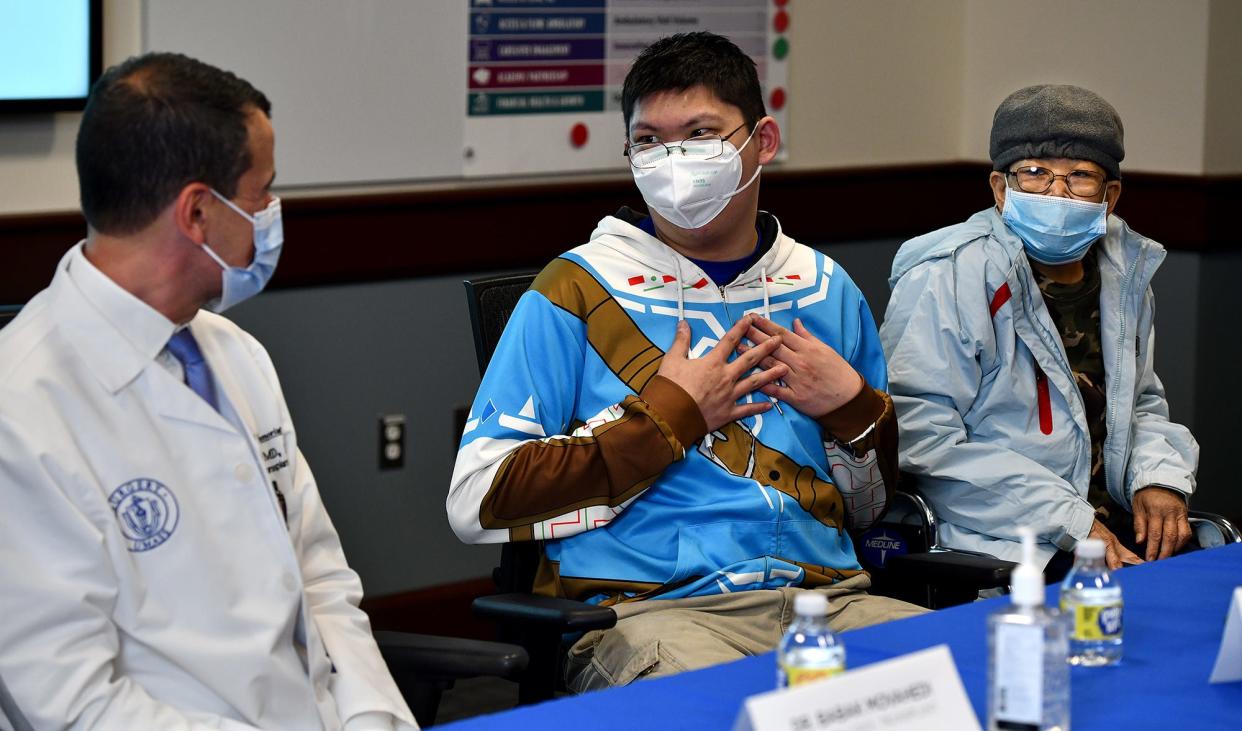
WORCESTER — A “herculean effort” is how Dr. Stephanie Carreiro described the steps taken to save the life of Kam Look and her son, Kai Chen.
The three sat in front of television cameras and reporters Thursday afternoon at UMass Memorial Medical Center – University Campus, where they shared the gut-wrenching story of how doctors sprang into action in a literal race against time to save the mother and son’s life after both ate poisonous wild mushrooms.
'Death cap'
The variety they consumed is one of the deadliest on the planet — the so-called "death cap."
The white mushroom’s scientific name is Amanita phalloides, and its shape reminded Look of the harmless brown-capped mushrooms she picked for cooking when she lived in her homeland of Malaysia.
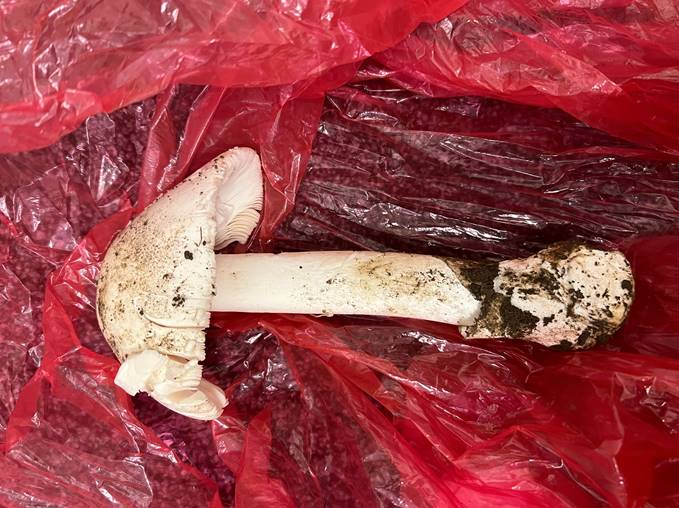
Earlier this month, Look noticed the mushrooms growing near a friend’s garden in Amherst. She took a few back to her home in Amherst, and cooked them for supper.
Just to make sure they were safe, Look cooked them with ginger, an ancient technique based on the belief that if the ginger turns black, the mushrooms are safe to eat.
The ginger didn't show signs of poison, but the mushrooms were far from safe.
'Be careful'
Chen translated for his 63-year-old mother, who sat in a wheelchair at Thursday’s news conference as she continues to recover from the ordeal. Her warning was to anyone who might consider eating wild mushrooms.
“Be careful what you find in the woods, especially mushrooms. It’s safer to purchase them from local supermarkets and stores.”
Severe illness
Within a few hours after ingestion, mom and son experienced severe stomach pain, vomiting and diarrhea.
Two days later, both checked into Cooley Dickinson Hospital in Northampton, where Chen said he was told he needed a liver transplant.
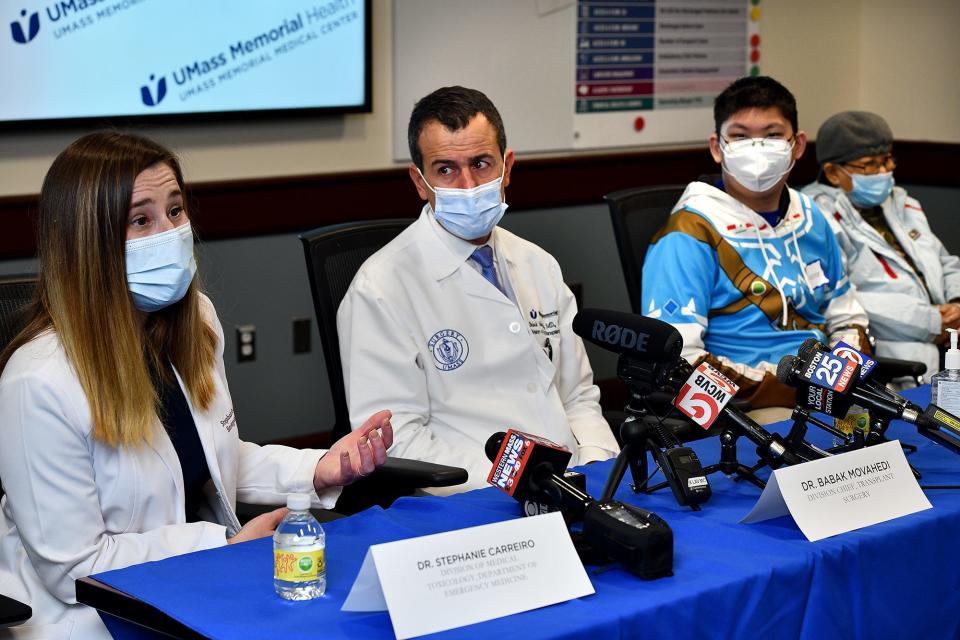
Ultimately, he didn’t need one, but his mother did.
That diagnosis was made at UMass Memorial Medical Center, where Look and Chen were transferred for advanced care.
“They were very ill when they arrived. They had liver damage and spent several days in the intensive care unit,” said Carreiro.
Legalon drug a savior
Amatoxin, a molecule in the mushrooms, was the root cause of the poisoning, and the UMass medical team turned to Legalon for treatment.
Not yet approved by the U.S. Food and Drug Administration, UMass Memorial described Legalon as an investigational drug that requires special “compassionate use” approval when no other therapies are available.
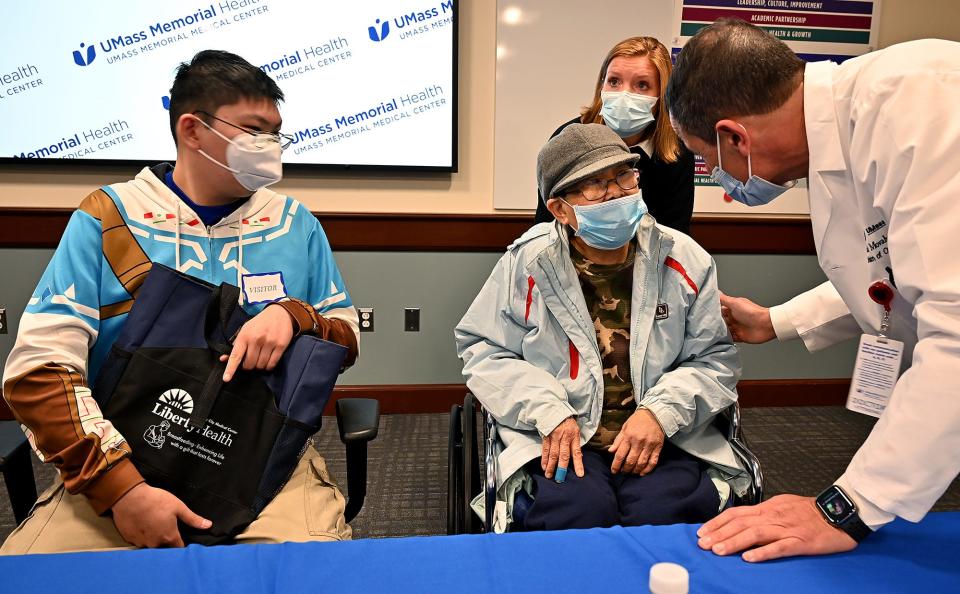
The drug was flown in from Philadelphia, and the trip was a nail-biter because the drugs were mistakenly sent to Logan Airport. A Massachusetts State Police crew rushed them to UMass Memorial.
The drug worked for Chen, his health improved, and he was discharged within a week.
Tougher road for mom
Look wasn't as fortunate.
She suffered acute liver failure - Status 1 - which meant a short life span, said Dr. Babak Movahedi, UMass division chief of transplant surgery. As a result, Look was bumped to the top portion of a waiting list for a donated liver.
Movahedi explained a donor must be found within 500 nautical miles, and even if a good match is found, there is a "narrow window" to perform surgery.
Within 24 hours after the UMass Memorial Health team decided transplant was the only option to save Look’s life, a match came through.
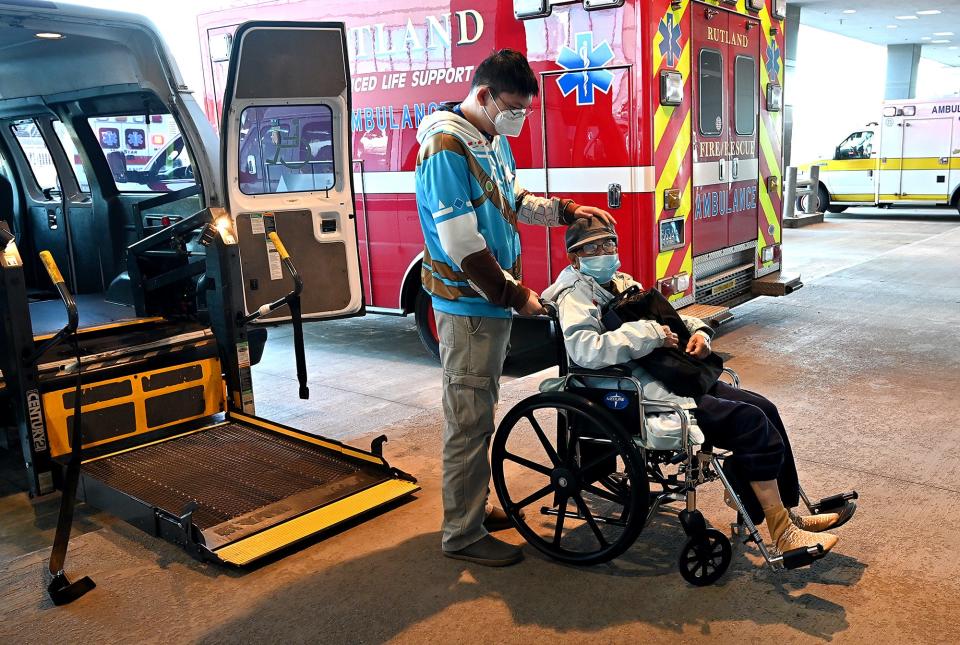
“The emotional toll was very great on me,” said Chen, 27, an only child. “I’m grateful, and I’ll never be able to repay the donor family.”
Recovery continues
Today, Look continues her recovery at Whittier Rehabilitation Hospital, and her son makes frequent visits.
Both survived a potentially deadly case of poisoning, one that just a few years ago had a death rate of 30%-50%.
Today, the rate is 10%-20%, explained Carreiro, thanks to advances in critical care and antidotes like Legalon.
Every year in the U.S. there are an average of 700 cases of people accidently eating poisonous mushrooms, said Carreiro. The number of deaths fall in the single digits yearly from the "death cap" mushroom.
As for the deadly nature of amatoxin, Carreiro said the top part of a mushroom has enough poison to kill. The poison doesn't degrade when it's cooked, and in some cases, one can feel fine six to 12 hours after eating the mushroom.
Symptoms, including nausea, vomiting and diarrhea will appear. They can subside, but will return, and within 42 to 72 hours, liver failure will commence, followed by death.
'Grateful, thankful'
“Grateful” and “thankful” for the UMass medical team were words Chen repeated throughout the press conference.
He wore a colorful shirt that paid homage to his favorite video game "The Legend of Zelda: Breath of the Wild.” Chen said he "splurged" on the shirt, because of the support he gives his parents, especially his mother.
Then Chen became philosophical, reflecting on his family's battle against mushroom poisoning.
"Life can be a bumpy road, but no matter what, don’t go into despair," he said.
Contact Henry Schwan at henry.schwan@telegram.com. Follow him on Twitter @henrytelegram
This article originally appeared on Telegram & Gazette: UMass Memorial Medical Center doctor saves pair who ate wild mushrooms

